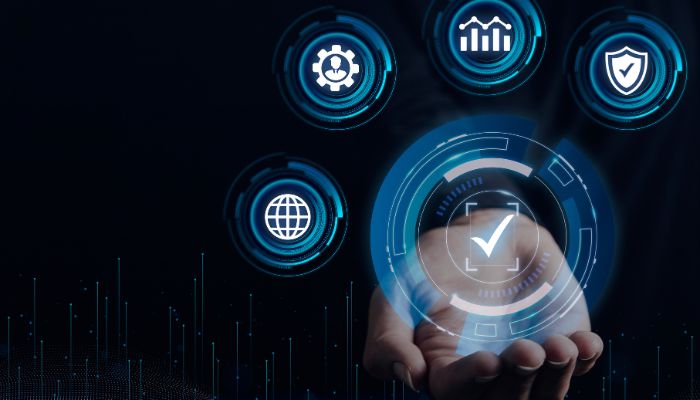As the skill demands of the workplace continue to evolve, so do the responsibilities of learning and development professionals grow. With each new demand, their functions move further away from their traditional role of creating training programs at the request of business leaders. The challenge with L&D has always been the deployment and maintenance of relevant, accessible, and engaging learning content. Using the traditional learning management system (LMS) has made achieving this difficult; hence the transition to the modern learning experience platforms (LXP)
Learning management system vs learning experience platforms
The business environment today is one that changes rapidly. The skills and competencies required are on a continuous spin especially because of the marked improvements in digital and technological applications. To this end, corporate training has become a competitive advantage for companies because employees are in search of organizations that promise career growth and development through continuous training. Organizations are now investing heavily in corporate training.
There are two approaches companies use to instill industry-driven skills into their employees – learning management system and learning experience platform. LMS is the traditional system that has been in use long before the innovation of LXPs. The LMS and LXP are very similar in that they’re both e-learning platforms. However, the major difference between both approaches to corporate learning is what makes the LXP more preferable.
An LMS is software that houses, delivers, and tracks all training content. In an LMS, courses, and training materials are centrally controlled by the admin. Learning and development have used the LMS since the 1990s. But the LXP gradually wiping out the LMS because of its user-friendliness and ease of access. What makes the LXP stand apart from the LMS is who controls the content.
You might also be interested to read: Future Of Learning: Top Five Trends In 2020
LXPs are dynamic and use AI to adjust the content based on a learner’s specific needs and goals. Learning experience platforms are highly customizable, offering a wide range of personal and professional development content to learners. The learning experience platform market is currently worth over $300 million and steadily growing.
Key differences between LMS and LXP
The approach
In an LMS, the approach to learning and development is a top-down approach where employers have complete control over learning content. That is, employers, decide what they want employees to learn and they assign materials to this effect based on company objectives. In this system, learners have little say in charting their professional maps. The company decides this alongside expectations, milestones, and assessments, which allows managers to track employee training along the way.
The LXP is different in this regard in that it uses a bottom-up approach to employee training and learning. In this system, employees have control over learning content and they learn only what they want. LXP increases employee engagement in the learning and development process. The platform continues to find personalized recommendations to share with learners using AI via integrated content libraries.
The content
The training offered to employees by LXPs is much broader and wide-ranging than available to them in a learning management system. This case is so because, in an LMS, the training and learning content is curated and centrally managed. A learning experience platform allows users to acquire learning content from third-party sources. As such, employees can learn new things that are relevant to them from any source.
Despite the level of learner engagement LXPs provide, companies can still customize contents on LXPs to align with specific goals while maintaining a focus on the learner’s personal experience, not a data-driven result. With an LXP, employees can acquire both professional and personal growth. An LMS only trains them to set them up for success at work.
Reasons for transitioning to learning experience platforms (LXP)
Only until recently did LXPs begin to gain traction within the corporate space as it concerns learning and development. The LMS platform used to be the bulwark of learning in every organization. Although LMS served the primary purpose for every corporate training, the needs of operational learning have evolved beyond what the LMS can offer; hence, the use of LXPs for employee training.
The major reason behind the transition from LMS to LXPs is the realization by companies of the need to improve the products and services offered to guarantee a better customer experience. Other reasons include:
The desire for personalization
As stated earlier, the LMS was centrally controlled by the management. Every learning material and training objective was determined by the organization. Aside from learning from a finite collection of courses, users of the platform often found it difficult to find appropriate learning content. The set up of LMSs was archaic and old-fashioned, and efforts to make navigation easier didn’t do much to help.
LXPs have solved this problem smartly through the use of brand-new technologies. Learners can easily search for whatever courses they desire even without a clear idea of what they want. Aside from this, LXPs have a wide variety of learning content, giving learners a large array of content from which they can choose. These platforms also give great control to employees through personalization. As such, they can provide valuable learning content suggestions.
Demand for better higher system standards
The platforms that power the learning management system and the learning experience platform differ significantly. Modern-day LMS’s are SCORM-based. Although the SCORM-based LMS provides results, there’s a limitation on the things it can do. The sole purpose of any talent management system is to improve employee on-the-job performance. While companies want to retain their employees and keep them happy by training them, they also want to see the result of the training reflected in their work.
SCORM makes it difficult to evaluate the effectiveness of corporate learning. It’s almost impossible for organizations to know if learning is effective or whether learners benefit from the courses. This situation begged the need for a better and more efficient system.
LXPs are based on experience API (xAPI), making it more capable than an LMS. On an LXP platform, learners’ progress can be easily tracked and monitored. Learning is flexible and not restricted by location or time. As such, knowledge transfer is almost instant and the acquired skills can be transferred to their jobs quickly. An employee’s performance on the job can improve even before completing a particular course content.
References:
- Learning Experience Platform: Everything you need to know about LXP/LEP | Valamis
- LMS vs LXP: How and why they’re different | Nikki Madures | July 9, 2019
- The Surprising Leap – LMS to Learning Experience Platform | Eoin McDonnell | July 4, 2018
You might also be interested to read:
Related Topics:






